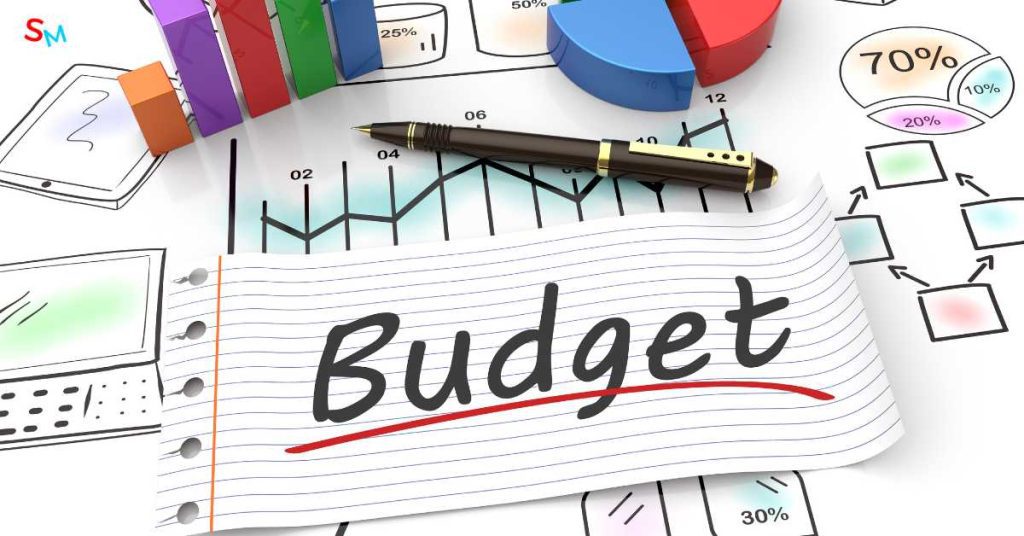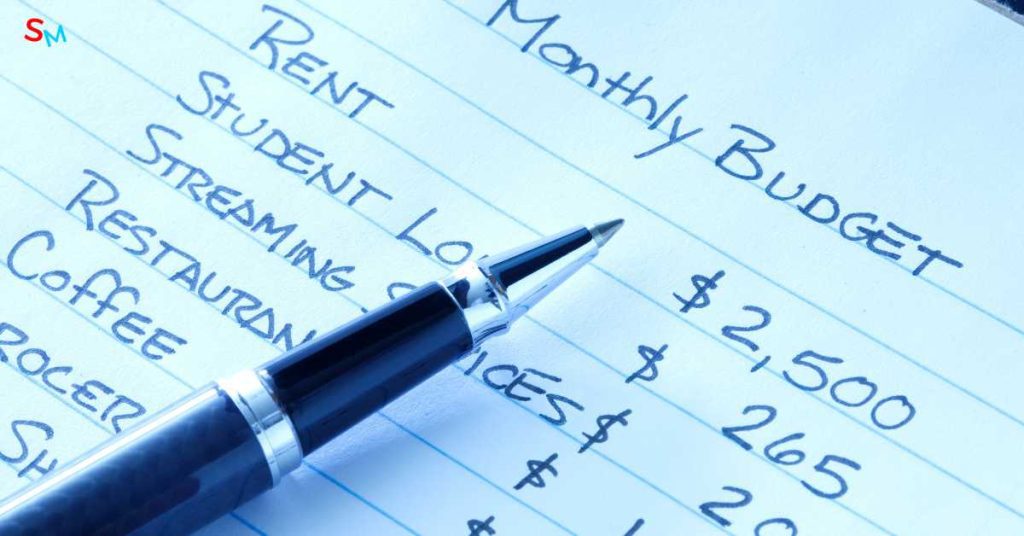7 Simple Ways to create a budget that works for you
Creating a personal budget is an essential step towards taking control of your finances and achieving your financial goals. A budget can help you track your expenses, identify areas where you may be overspending, and make adjustments as necessary. By creating a budget that works for you, you can reduce financial stress, pay off debt, save for a down payment, or achieve any other financial objective you may have.
In this article, we’ll explore the key steps involved in creating an effective budget, including identifying your income, tracking your expenses, categorizing your spending, setting financial goals, and using your budget effectively.
By following these steps and staying disciplined in your spending habits, you can take control of your finances and achieve your long-term financial objectives.
Related Articles;
- Biweekly Money Saving Challenge for 2023
- 7 Top Financial Moves To Make When Your Savings Reaches $100,000
- Best Checking Accounts 2023
What is a budget?

A budget is like a plan for your money. It helps you keep track of how much money you have coming in, and how much you’re spending. Just like a coach creates a game plan for a team before a big game, a budget helps you create a plan for your money.
Think about it like this: let’s say you have a job where you earn $100 a week. You want to buy a new video game that costs $60. If you don’t create a budget, you might spend all of your money on other things and not have enough left over to buy the game. But if you create a budget, you can set aside $60 for the game and make sure you don’t spend that money on anything else.
Another example is if you’re going on a road trip with your friends. You’ll need to budget for things like gas, food, and any activities you want to do along the way. If you don’t create a budget, you might end up spending too much money and not have enough left over for the things you really want to do.
Why should you have a budget?

1. Helps you achieve your financial goals
When you have a budget, you can set specific financial goals and create a plan to achieve them. Whether you want to save for a vacation, pay off debt, or save for retirement, a budget can help you reach your goals faster.
2. Helps you make better spending decisions
When you create a budget, you can see exactly how much money you have coming in and going out. This helps you make better decisions about where to spend your money and identify areas where you might be overspending.
3. Reduces stress and anxiety
Financial stress can be a major source of anxiety for many people. By creating a budget, you can feel more in control of your money and reduce stress and worry about your finances.
4. Helps you avoid debt
One of the biggest benefits of having a budget is that it can help you avoid taking on unnecessary debt. By tracking your expenses and sticking to a spending plan, you can avoid overspending and accumulating credit card debt or other forms of debt.
5. Gives you a clear picture of your financial situation
Creating a budget forces you to take a close look at your finances and understand your cash flow. This can help you identify areas where you might be overspending or where you could be saving more money.
What kind of budget should you have?

The kind of budget you should have will depend on your personal financial situation and goals. However, there are a few different types of budgets that you can consider:
1. Zero-based budget
This type of budget involves giving every dollar you earn a specific job. You start by listing all of your income and expenses and then allocating your money to specific categories until you reach zero. This type of budget helps you make sure you’re not overspending and can be a good option if you’re trying to pay off debt or save money.
2. 50/30/20 budget
This budget involves dividing your income into three categories: 50% for needs, 30% for wants, and 20% for savings and debt repayment. This budget can be a good option if you’re just starting out with budgeting and want a simple plan to follow.
3. Envelope budget
This budget involves setting aside cash for specific categories and keeping that cash in envelopes. For example, you might have an envelope for groceries, an envelope for entertainment, and an envelope for gas. This can be a good option if you tend to overspend on certain categories.
4. Spreadsheet budget
This type of budget involves tracking your income and expenses in a spreadsheet, such as Excel or Google Sheets. This can be a good option if you want to create a detailed budget and have more control over your spending.
7 Types of budget

There are several types of budgets that individuals, households, and organizations can use. Below are some of the most common types:
1. Static budget
A static budget is a budget that remains fixed regardless of changes in actual sales or revenue. It is usually created at the beginning of the budget period and remains unchanged throughout the period.
2. Flexible budget
A flexible budget is a budget that can be adjusted to accommodate changes in actual sales or revenue. It is usually created based on different levels of sales or revenue, and can be adjusted based on actual performance.
3. Operating budget
An operating budget is a budget that covers the day-to-day expenses of an organization or individual. It includes items such as salaries, utilities, rent, and other expenses necessary to run the organization.
4. Capital budget
A capital budget is a budget that covers the acquisition of long-term assets such as buildings, machinery, and equipment. It is usually created for a longer period of time than an operating budget, such as 5-10 years.
5. Cash budget
A cash budget is a budget that focuses on cash flow, including inflows and outflows of cash. It is used to ensure that an organization or individual has enough cash to meet its financial obligations.
6. Zero-based budget
A zero-based budget is a budget that starts from zero and requires that all expenses be justified for each new period. This type of budget can help identify unnecessary expenses and encourage cost-saving measures.
7. Program budget
A program budget is a budget that allocates funds based on specific programs or activities rather than on departmental or organizational units. This can help ensure that resources are allocated to programs based on their importance and effectiveness
6 Factors to consider in choosing budget

1. Your financial goals
Your financial goals should be the primary consideration when choosing a budget. Do you want to save money, pay off debt, or achieve a specific financial goal? Different budgets will be better suited to different goals, so choose a budget that aligns with your priorities.
2. Your income
Your budget should be based on your income, so it’s important to consider how much money you make when choosing a budget. You don’t want to create a budget that is too restrictive or unrealistic based on your income level.
3. Your Expenses
Consider your expenses and which budget will be best suited to your spending habits. If you have a lot of fixed expenses, a zero-based budget may be more difficult to implement. If you have a lot of variable expenses, an envelope budget may be more effective.
4. Your lifestyle
Your lifestyle should also be considered when choosing a budget. If you enjoy going out to eat or spending money on entertainment, you may want to choose a budget that allows for some discretionary spending.
5. Your financial knowledge and discipline
Some budgets require more discipline and financial knowledge than others. If you’re new to budgeting or don’t have a lot of financial knowledge, you may want to choose a budget that is more straightforward and easier to implement.
6. Your time and resources
Some budgets may require more time and resources to implement than others. If you have a busy schedule or limited resources, you may want to choose a budget that is simpler and easier to maintain.
How to create a personal budget?

1. Identify your income
Identifying your income is the first step in creating a personal budget. It’s important to know exactly how much money you have coming in each month so that you can plan your expenses accordingly.
Your income can come from several sources, such as your job or employment income, rental income from a property you own, investment income, or income from a side hustle or freelance work.
To identify your income, start by looking at your pay stubs or bank statements. Calculate your monthly salary or wages and any other regular sources of income. If you have a side hustle or freelance work, estimate your monthly income based on your average earnings.
It’s important, to be honest with yourself when identifying your income. Don’t overestimate your income, as this can lead to overspending and not having enough money to cover your expenses. On the other hand, don’t underestimate your income either, as this can lead to missed opportunities to save or invest.
As a way to illustrate, let’s say your income is like a paycheck from a job. Just as you would receive a paycheck for your work, your income represents the money that you earn each month. And just as you would budget your paycheck to cover your expenses, you should budget your income to cover your expenses and achieve your financial goals.
Identifying your income is a crucial step in creating a personal budget. By knowing exactly how much money you have coming in each month, you can make informed decisions about how to allocate your money and achieve your financial goals.
2. Track your expenses
Tracking your expenses is a crucial step in creating a personal budget. It involves keeping track of all the money you spend over a certain period of time, typically a month or more. This helps you understand where your money is going and identify areas where you may be overspending.
For example, If you imagine keeping a food diary. When you’re trying to lose weight or improve your health, keeping track of what you eat can be a helpful tool. It helps you see patterns in your eating habits and identify areas where you may need to make changes.
Tracking your expenses helps you see patterns in your spending habits and identify areas where you may need to cut back. It also helps you identify areas where you may be wasting money or overspending without realizing it.
If you want to track your expenses, start by keeping a record of all the money you spend. This includes everything from bills and groceries to entertainment and dining out. You can use a budgeting app, spreadsheet, or pen and paper to keep track of your expenses.
It’s important to be thorough when tracking your expenses. Don’t forget about small purchases, like a cup of coffee or a snack, as these can add up over time. By tracking all of your expenses, you’ll have a clear picture of where your money is going and can make informed decisions about how to allocate your money in the future.
3. Categorize your expenses
Categorizing your expenses is an important step in creating a personal budget. It involves grouping your expenses into different categories, such as housing, transportation, food, entertainment, etc. This helps you see where your money is going and identify areas where you may be overspending.
Categorizing your expenses is just like organizing a closet. When you have a messy closet, it can be hard to find what you’re looking for and you may end up buying things you don’t need. But when you organize your closet by categories, such as shirts, pants, and shoes, you can easily find what you need and avoid buying unnecessary items.
Similarly, categorizing your expenses helps you see where your money is going and avoid overspending. It helps you identify areas where you may need to cut back and make informed decisions about how to allocate your money.
To categorize your expenses, start by looking at your tracked expenses and grouping them into different categories. Common categories include housing, transportation, food, entertainment, clothing, and personal care. You can use a budgeting app or spreadsheet to help you categorize your expenses.
4. Set financial goals
Setting financial goals is an important step in creating a personal budget. It involves identifying what you want to achieve with your money and creating a plan to reach those goals.
Just like planning a road trip before setting out on a long journey, you need to have a destination in mind and a plan for how you’re going to get there. Similarly, setting financial goals helps you identify where you want to go with your money and how you’re going to get there.
To set financial goals, start by thinking about what you want to achieve with your money. Do you want to save for a down payment on a house, pay off debt, or save for retirement? Once you’ve identified your goals, set specific targets and deadlines for achieving them.
It’s important to be realistic when setting financial goals. Don’t set goals that are too ambitious or that you’re unlikely to achieve. Instead, set goals that are challenging but achievable. This will help you stay motivated and make progress towards your goals.
Once you’ve set your financial goals, create a plan for how you’re going to achieve them. This may involve creating a budget that allocates your money towards your goals, finding ways to increase your income, or reducing your expenses.
Remember to regularly review your progress towards your financial goals and make adjustments to your plan as needed. You may find that your goals change over time, or that you need to make changes to your plan in order to stay on track.
5. Create a budget
Creating a budget is a crucial step in taking control of your finances. It involves looking at your income and expenses and creating a plan for how you’re going to allocate your money.
For instance, When you plan your meals, you think about what you want to eat, what ingredients you need, and how much you’re going to spend. Similarly, when you create a budget, you think about what you want to spend your money on, how much you need to allocate for different expenses, and how much you can save.
To create a budget, start by identifying your income and expenses. This includes your regular income, such as your salary or wages, as well as any additional income, such as freelance work or rental income. Then, look at your expenses and categorize them into different categories, such as housing, transportation, food, and entertainment.
Next, prioritize your expenses based on your needs and wants. For example, housing and transportation are typically essential expenses, while entertainment and dining out are discretionary expenses. Allocate your money accordingly, and make sure to set aside some money for savings and unexpected expenses.
Please, you have to be realistic when creating a budget. Don’t allocate more money than you have available, and be prepared to make adjustments as needed. For example, if you find that you’re overspending on entertainment, you may need to cut back in order to stay within your budget.
Using a budgeting app or spreadsheet can be helpful in creating and tracking your budget. This will allow you to easily see where your money is going and make adjustments as needed.
6. Monitor and adjust
Monitoring and adjusting your budget is an important step in achieving your financial goals. Once you’ve created your budget, you need to keep track of your spending to ensure that you’re sticking to your plan and making progress towards your goals.
Monitoring and adjusting your budget is like checking the GPS while driving. You need to regularly check the GPS to make sure you’re still on the right path and adjust your route if necessary. Similarly, you need to regularly check your budget to make sure you’re on track and adjust your spending if needed.
To monitor your budget, review your spending regularly, such as on a weekly or monthly basis. This will help you see where your money is going and identify areas where you may be overspending. You can use a budgeting app or spreadsheet to track your spending and easily see where you may need to make adjustments.
When reviewing your budget, look for areas where you can cut back on expenses. For example, if you’re spending too much on dining out, consider cooking more meals at home. Or, if you’re overspending on entertainment, look for free or low-cost activities.
Do not feel bad to adjust your budget as your circumstances change because it is very important. For example, if you receive a pay increase or bonus, consider allocating some of that money towards your savings or paying off debt. Similarly, if you experience a decrease in income, you may need to adjust your budget and cut back on expenses.
Remember that creating a budget is not a one-time event. It’s an ongoing process that requires regular monitoring and adjustments. By monitoring your budget regularly and making adjustments as needed, you can stay on track towards achieving your financial goals and create a brighter financial future for yourself.
7. Be flexible
When it comes to creating and sticking to a personal budget, it’s important to be flexible. While having a budget is crucial for managing your finances, life is unpredictable, and unexpected expenses or changes in income can happen. This is why it’s important to be adaptable and make changes to your budget as needed.
For Instance, In yoga, you need to be flexible and adjust your movements to fit your own body’s needs. Similarly, with your budget, you need to be flexible and adjust your spending and saving habits to fit your financial situation.
Being flexible with your budget means allowing for some wiggle room. For example, you might create a category in your budget for “miscellaneous expenses” to account for unexpected costs that may arise. Or, you might adjust your budget temporarily to save up for a big purchase or event, like a vacation or wedding.
It’s important to remember that being flexible with your budget doesn’t mean abandoning it altogether. It means recognizing that sometimes unexpected expenses or changes may come up, and you need to be willing to adjust your budget accordingly.
To be flexible with your budget, make sure you have a plan in place for unexpected expenses. Consider building an emergency fund that can cover unexpected costs, like car repairs or medical bills. Also, be willing to make adjustments to your budget when needed, like cutting back on discretionary expenses to make up for unexpected costs.
How to make a budget work for you

Making a budget work for you is all about developing good financial habits and being disciplined with your spending and saving. Here are some tips to help you make your budget work for you:
1. Stick to your budget
The most important step in making a budget work for you is to stick to it. This means tracking your spending, reviewing your budget regularly, and making adjustments as needed.
2. Prioritize your expenses
When creating your budget, prioritize your expenses based on what’s most important to you. For example, if paying off debt is a priority, allocate a larger portion of your budget towards debt repayment.
3. Automate your savings
Set up automatic transfers to your savings account so that a portion of your income goes directly towards savings each month. This will make it easier to save consistently and help you reach your savings goals faster.
4. Avoid unnecessary expenses
Be mindful of your spending and avoid unnecessary expenses. For example, bring your lunch to work instead of eating out every day, or cancel subscriptions or memberships that you don’t use regularly.
5. Reward yourself
Building good financial habits takes time and effort, so it’s important to reward yourself for your progress. Set small milestones and celebrate when you reach them. For example, treat yourself to a nice dinner or a movie when you reach a savings goal.
6. Be patient
Making a budget work for you is a long-term process that requires patience and perseverance. Don’t get discouraged if you encounter setbacks or unexpected expenses. Keep your goals in mind and stay focused on your budget plan.
See examples of personal budget
6 Keys to having a successful budget

Having a successful budget is crucial for achieving your financial goals and building a secure financial future. Here are some keys to having a successful budget:
1. Set realistic goals
Your budget should be based on realistic financial goals that you want to achieve, such as paying off debt, saving for a down payment on a house, or building an emergency fund. Make sure your goals are specific, measurable, achievable, relevant, and time-bound (SMART).
2. Track your expenses
To create an effective budget, you need to track your expenses and know exactly where your money is going. Use a budgeting app, spreadsheet, or notebook to track your income and expenses.
3. Prioritize your expenses
Prioritize your expenses based on your financial goals and make sure you allocate your income accordingly. Start with your fixed expenses, such as rent, utilities, and debt payments, and then allocate money for your variable expenses, such as groceries, entertainment, and shopping.
4. Be disciplined
Sticking to your budget requires discipline and self-control. Avoid impulse purchases, resist the temptation to overspend, and focus on your financial goals. Don’t be afraid to say no to social events or purchases that don’t align with your budget.
5. Review and adjust your budget regularly
Your financial situation can change over time, so it’s important to review and adjust your budget regularly. Review your budget every month or quarter, and make adjustments as needed. This will help you stay on track towards your financial goals.
6. Celebrate your progress
Celebrate your progress and reward yourself when you reach milestones in your budget plan. This will help you stay motivated and inspired to continue your financial journey.
8 Things you should include in your budget

When creating a budget, it’s important to include all of your income and expenses so that you can get a clear picture of your financial situation. Here are some things you should include in your budget:
1. Income
Include all of your sources of income, including your salary, bonuses, freelance work, rental income, and any other sources of income you have.
2. Fixed expenses
These are expenses that don’t change from month to month, such as rent or mortgage payments, car payments, insurance premiums, and subscription services.
3. Variable expenses
These are expenses that vary from month to month, such as groceries, utilities, entertainment, and dining out.
4. Debt payments
Include all of your debt payments, such as credit card payments, student loans, car loans, and personal loans.
5. Savings
Allocate a portion of your income towards savings, such as an emergency fund, retirement savings, or a down payment on a house.
6. Irregular expenses
Don’t forget to include irregular expenses, such as annual subscriptions or memberships, car maintenance, or home repairs. These expenses may not occur every month, but they should be included in your budget so that you can plan for them when they do occur.
7. Taxes
Remember to include any taxes you need to pay, such as income tax, property tax, or sales tax.
8. Miscellaneous expenses
These are expenses that don’t fit into any other category, such as gifts, travel, or hobbies.
What is not a successful budgeting strategy?

There are several budgeting strategies that may not lead to a successful budget. Here are a few examples:
1. Ignoring irregular expenses
Failing to include irregular expenses in your budget can lead to overspending and put you in a tough financial spot when these expenses inevitably arise.
2. Being too strict
Being too strict with your budget and not allowing any room for fun or flexibility can lead to burnout and frustration. It’s important to find a balance between saving and spending that works for you.
3. Not tracking expenses
Without tracking your expenses, it’s impossible to know where your money is going and make informed financial decisions. Simply setting a budget without tracking your expenses is unlikely to lead to a successful budget.
4. Not reviewing or adjusting your budget
Financial situations can change over time, so it’s important to review and adjust your budget regularly. Failing to do so can result in an ineffective budget that doesn’t align with your current financial goals.
5. Using a one-size-fits-all approach
Everyone’s financial situation is unique, and a budget that works for one person may not work for another. It’s important to customize your budget to your specific financial goals and needs.
How do you analyse that a particular budgeting strategy is not working

1. Overspending
If you find yourself consistently overspending in certain categories, it may be a sign that your budget is too strict or that you need to re-evaluate your spending priorities.
2. Falling behind on bills or debt payments
If you’re consistently falling behind on bills or debt payments, it may be a sign that your budget is not realistic or that you need to adjust your spending habits.
3. Feeling stressed or burnt out
If you feel stressed or burnt out by your budgeting strategy, it may be a sign that you need to re-evaluate your goals and find a more sustainable approach to managing your finances.
4. Not achieving your financial goals
If you’re not making progress towards your financial goals, such as paying off debt or saving for a down payment, it may be a sign that your budgeting strategy needs to be adjusted.
5. Failing to track expenses
If you’re not tracking your expenses, it can be difficult to know if your budgeting strategy is working or if you need to make adjustments.
If you’re experiencing any of these signs, it may be time to re-evaluate your budgeting strategy and make adjustments as necessary. Remember that budgeting is a continuous process, and it’s important to regularly review and adjust your budget to ensure that it is effective and aligned with your financial goals.
How to use your budget?

1. Review your budget regularly
It’s important to review your budget regularly, whether that’s weekly, bi-weekly, or monthly, to make sure you’re staying on track.
2. Track your expenses
Keep track of your expenses so you can compare them to your budget. This will help you identify areas where you’re overspending and adjust your spending habits accordingly.
3. Make adjustments as necessary
If you find that you’re consistently overspending in certain categories or falling behind on bills, it may be time to adjust your budget. This could mean reducing spending in certain areas or finding ways to increase your income.
4. Stay disciplined
It can be challenging to stick to a budget, but it’s important to remain disciplined and stay focused on your financial goals. This means avoiding unnecessary purchases and sticking to your budget as closely as possible.
5. Celebrate your successes
When you achieve a financial goal, such as paying off a credit card or saving for a down payment, take the time to celebrate your success. This will help you stay motivated and focused on your long-term financial objectives.
Conclusion
Creating and sticking to a budget can be a powerful tool for achieving your financial goals. By identifying your income, tracking your expenses, categorizing your spending, and setting financial goals, you can create a budget that works for you. It’s important to regularly monitor and adjust your budget as necessary, and to remain disciplined in your spending habits. By using your budget effectively, you can take control of your finances, reduce stress, and achieve your long-term financial objectives. Whether you’re saving for a down payment, paying off debt, or simply looking to improve your financial health, a well-designed and executed budget can help you get there.
Leave a Reply